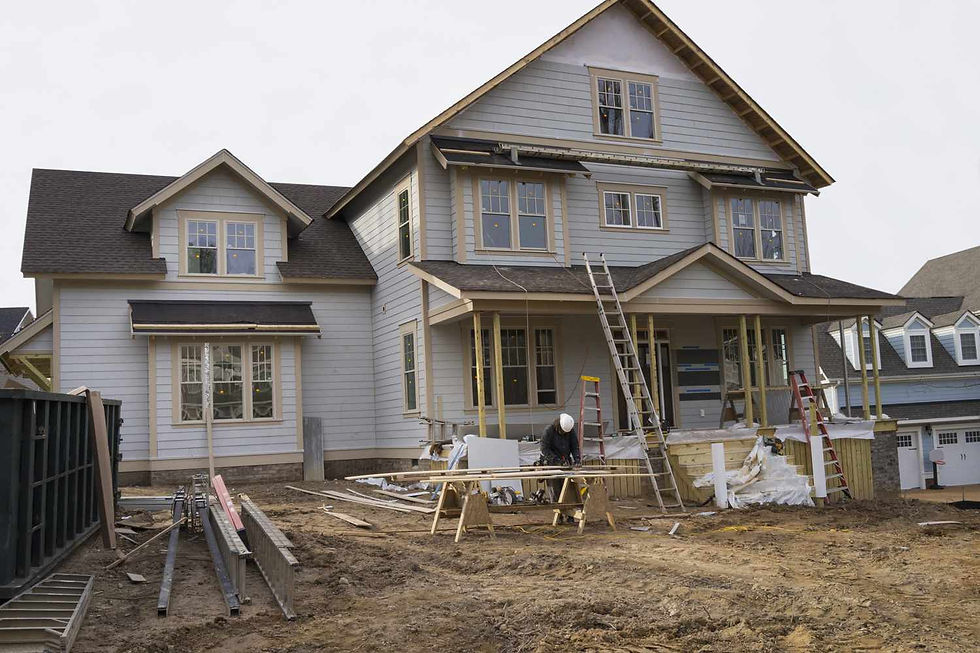Everything You Should Know about the Whole House Repiping
- buikimtu14032

- May 3, 2023
- 3 min read
Home plumbing requires upkeep, like any other part of the house. Corrosion can occur to pipes over time, making them prone to leaks, low water pressure, discolored water, and unusual noises. When that happens, whole-house repiping comes into play.

Consider repiping your house if you're frequently incurring repair costs, live in an older home, or are undergoing remodeling. Gain an understanding of repiping a house, including the renovation process and when to determine it's the right time.
Whole house repiping definition

Repiping involves replacing an outdated plumbing system in a home with a new and updated one, often in older homes with faulty pipes or during a significant home remodeling.
When will you need to perform a whole house repiping
Repiping your home is quite a major decision. Here are indications it's time to consider doing it.
Lead or Galvanized Steel Pipes in Your Home
Homes built over a century ago were often equipped with lead pipes, which pose a health risk if lead seeps into the water. While updates were made to some older homes, yours may have not been. It's essential to verify if your home has lead pipes and if so, reach out to a professional plumber for full repiping. If you’re in San Jose, we’re more than happy to help you.

Galvanized steel was a common material used in homes built before the 1940s and sometimes in the 1950s or 1960s. Though strong, it can corrode, leading to leaks or sediment in drinking water.
Constant pipe repairs not resolving issues

Frequent leaks or problems with pipes can lead to high plumbing repair costs. Whole house repiping can save you money and correct recurring plumbing issues while providing a new system designed to last for many years.
You need your home fully remodeled

Renovating your kitchen, or bathroom, or adding rooms may require new plumbing fixtures. Take advantage of this opportunity to re-pipe your home and upgrade your plumbing, to avoid issues where the old and new systems intersect from the remodel.
How to perform a whole house repiping
1. Do a full inspection before you start doing repiping

A professional plumber must inspect your old system using video and give a cost estimate for the job. Obtain several local plumber’s quotes for comparison, then decide on full repiping or a phased approach. You can also read more about video inspection here.
2. Cover or get all your appliances away
Plumbers must cut holes in drywall to access old pipes and install new ones. Move furniture away, cover it to prevent dirt or damage, and consider valuable items that may be impacted, such as flat-screen TVs, art, or décor.

The water supply will be temporarily cut off during the project. Access to water from old pipes will be available at times, as the plumber installs the new system alongside the old one, but there will be times when water will be fully off for a plumbing connection.
3. Make sure plumbers have access to the drywall

Plumbers need to access your drywall to do the whole house repiping. Don’t worry. Your wall will be repaired and painted after completion, but ensure access to the walls beforehand by clearing furniture, artwork, or wall hangings.
4. Work permit
As with other renovations, a work permit is necessary for whole-house repiping and should be obtained after you’re done with the initial steps.
5. Simultaneously check and finish repiping

A professional inspection of the work is necessary after the pipes are installed. Once the inspector approves, the plumber can repair the drywall and repaint the walls to restore their appearance.
How long should a whole house repipe last?
Repiping duration varies. It usually takes 2-7 days depending on the home size and the number of bathrooms. Water supply may be temporarily disrupted, so plan with your plumber to minimize inconvenience.
Those are what you should know about whole house repiping. The process is pretty self-explanatory. It is also not something you should execute all by yourself. You can contact us if you’re in San Jose so we can help you with your repiping.




Comments